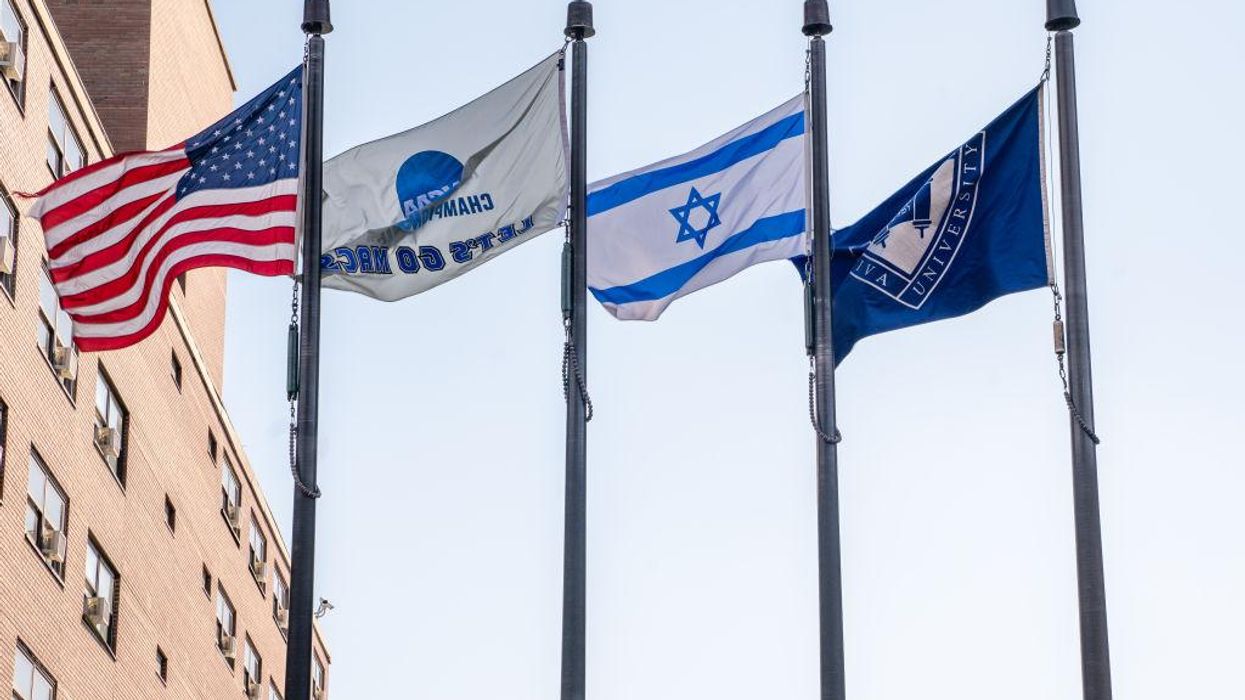
Photo by David Dee Delgado/Getty Images

When presented with a court order to formally recognize an LGBT student group, the Jewish Yeshiva University in New York City determined it would be optimal to "hold off on all undergraduate club activities while it takes steps to follow the roadmap provided by the US Supreme Court to protect YU's religious freedom."
Katie Rosenfeld, the lawyer for the unofficial gay activist group that sued the college for recognition, characterized the college's refusal to back down as a "shameful tactic," likening it to the stratagems of segregationists.
In 2018, a gay activist student group was informally created at Yeshiva University. The school is said to have overrode the student council's 2019 approval of the group and to have blocked its recognition again in 2020.
The college, which continues a 136-year commitment to religious identity, explained that the conference of official status to the group would be "inconsistent with the school's Torah values and the religious environment it seeks to maintain."
As controversy first began to mount, the university released a statement suggesting "The message of Torah on this issue is nuanced, both accepting each individual with love and affirming its timeless prescriptions. While students will of course socialize in gatherings they see fit, forming a new club as requested under the auspices of YU will cloud this nuanced message."
While opposed to formally recognizing a gay student group, the university made explicit its ongoing commitment to support gay students as well as to prohibit discrimination and harassment.
On April 27, 2021, a cadre of former and past students sued Yeshiva University to force the institution to recognize their gay activist group, the Yeshiva University Pride Alliance. The students behind the suit suggested that the college's refusal amounted to a violation of New York's human rights law.
In June, Democratic Judge Lynn Kotler of the New York Supreme Court First Judicial District ruled that Yeshiva University must approve the formation of the gay activist club. Kotler argued that the college did not constitute a "religious corporation," but was instead — according to its own charter — an "educational corporation," meaning the city's anti-discrimination law applied.
A university spokesman took issue with Kotler's insistence that the university was not a religious institution, telling the Commentator: "As our name indicates, Yeshiva University was founded to instill Torah values in its students while providing a stellar education, allowing them to live with religious conviction as noble citizens and committed Jews."
The college has reportedly also maintained that its non-sectarian status was based on its non-discriminatory practices in its admissions rather than on its administrative decisions.
The spokesman added that the "court's ruling violates the religious liberty upon which this country was founded."
Eric Baxter, vice president and senior counsel at the Becket Fund for Religious Liberty, stated, "When secular authorities try to tell Yeshiva University that it is not religious, you know something has gone terribly wrong ... The First Amendment protects Yeshiva's right to practice its faith."
The university issued an emergency request to the U.S. Supreme Court, seeking relief from the order, which the justices summarized as "requiring the University to treat an LGBTQ student group similarly to other student groups in its student club recognition process."
On September 14, the Supreme Court refused to block the order in a 5-4 decision, with conservatives Chief Justice John Roberts and Justice Brett Kavanaugh voting in the majority.
In an unsigned order, the majority wrote that the university should return to the state court to seek quick review and temporary relief while the case continues.
Rabbi Dr. Ari Berman, the president of the college, issued a statement after the decision was handed down: "Every faith-based university in the country has the right to work with its students, including its LGBTQ students, to establish the clubs, places and spaces that fit within its tradition."
He noted "Yeshiva University simply seeks that same right of self-determination."
Berman indicated that the college will seek to restore that right by pursuing "the roadmap" presented to the college by the Supreme Court.
In the interim, all student clubs and groups will be suspended.
The president of the college's student union, Baruch Lerman, noted that he and his organization "were not expecting the university to take this drastic measure, and have not received any guidance about how we are to proceed with approving clubs." He also told the Commentator that they have also not recieved instruction on how to proceed hosting student council events.
Lerman also indicated he would insist that student activity fees "on every student's tuition bill be prorated for the extent of the time that student activities are suspended."
A spokesman told Fox News that the school expects "a quick conclusion in the courts and the start of clubs soon."
Seattle Pacific University, a Christian college in Washington state, filed a lawsuit on July 27 against Bob Ferguson, the attorney general of Washington, claiming he had encroached upon its constitutional rights as they relate to the institution's private religious convictions, communications, and hiring practices.
In its lawsuit, SPU stated it "expects its faculty, staff and leadership to agree with the University's statement on faith and to live out that faith as a model for others, including by living according to the University's religious teachings on marriage."
Members of the board of trustees of SPU are now being sued for barring persons in gay relationships from working full-time.
At Brigham Young University, students and gay activists protested earlier this month when the LDS college removed pamphlets promoting gay activism, events, and other resources from new students' welcome bags. BYU's honor code prohibits "same-sex romantic behavior."
As part of the protests at BYU, the so called RaYnbow Collective held a drag show for students which was also open to children.